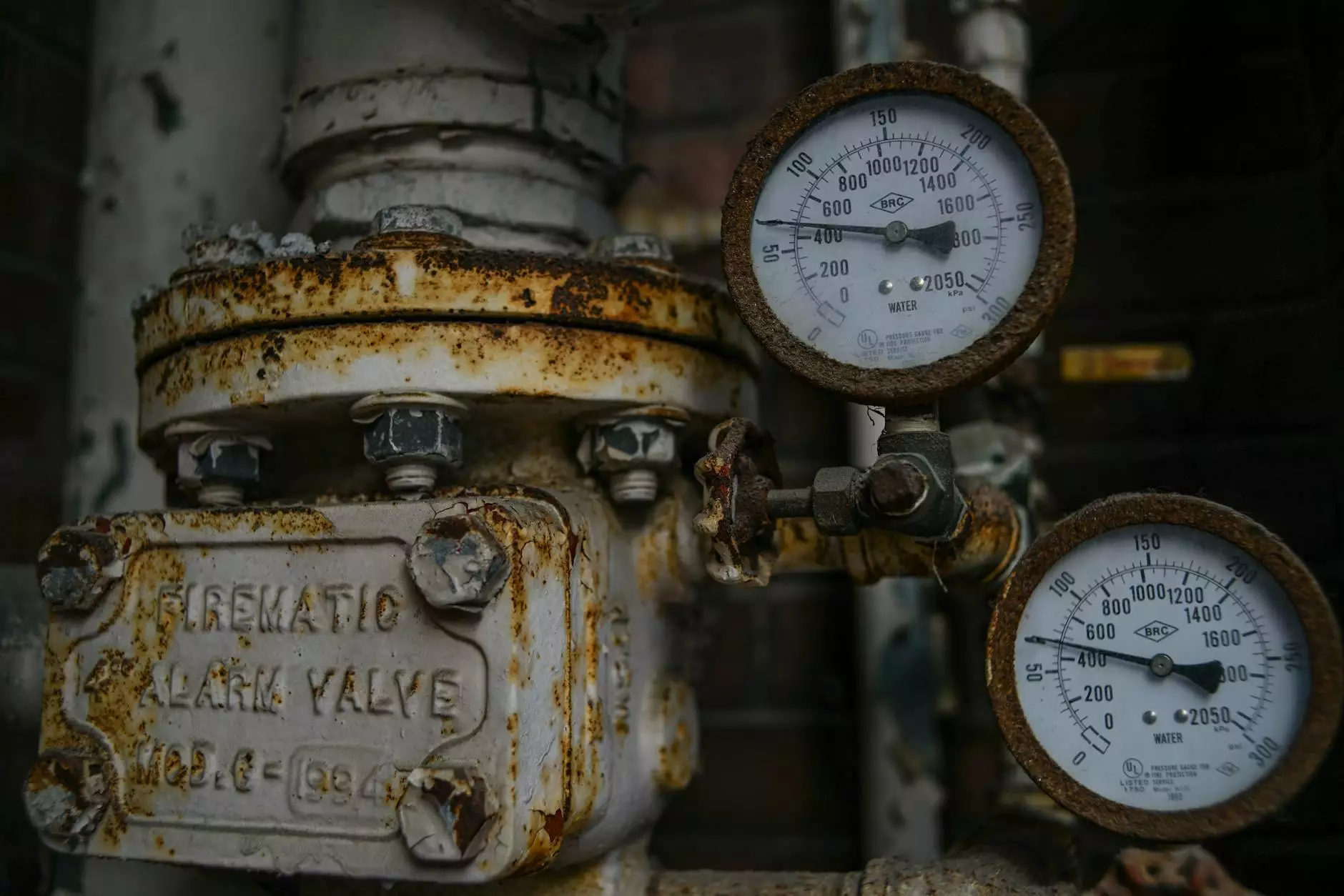The Essential Guide to Choosing the Perfect Refrigerated Cabinet

In the ever-evolving world of business and retail, staying ahead of trends and ensuring the quality of products can make or break your success. One integral piece of equipment that plays a pivotal role in product storage and display is a refrigerated cabinet. This guide delves into the vital aspects of refrigerated cabinets, helping you make an informed decision for your business at everymaterial.com.
Understanding Refrigerated Cabinets
A refrigerated cabinet, commonly referred to as a refrigerator display unit, is essentially a cooling appliance designed to maintain low temperatures for various types of products. These cabinets are crucial in sectors like food services, food retail, and pharmaceuticals, where temperature control is paramount.
Key Features of Refrigerated Cabinets
When selecting a refrigerated cabinet, there are several important features to consider:
- Temperature Range: Different food products require different temperature settings. Be sure to select a cabinet that can maintain the ideal environment for your goods.
- Size and Space: Consider the layout of your business and choose a cabinet that maximizes space without overwhelming your customers.
- Energy Efficiency: Look for models that are energy-efficient to reduce operational costs while being environmentally conscious.
- Design: The aesthetic of your refrigerated cabinet matters. Opt for glass doors or attractive displays that enhance visibility and appeal.
- Noise Levels: Choose a unit that operates quietly, ensuring a pleasant atmosphere for customers and staff.
The Benefits of Using Refrigerated Cabinets
Investing in the right refrigerated cabinet can bring numerous advantages to your business:
1. Product Preservation
One of the primary benefits of a refrigerated cabinet is its ability to keep perishable items fresh. Ripe fruits, vegetables, dairy products, and meats can spoil quickly if not stored correctly. With a reliable cabinet, you maintain optimal temperatures, thereby extending the shelf life of your products.
2. Enhanced Presentation
Customers are more likely to purchase items that are presented well. A good refrigerated cabinet not only preserves products but also showcases them effectively. Customers are naturally drawn to items that are displayed attractively, which can lead to increased sales.
3. Improved Inventory Management
Modern refrigerated cabinets often come equipped with features that allow businesses to track temperatures and inventory levels. This facilitates better control of stock and prevents spoilage due to temperature fluctuations.
4. Compliance with Health and Safety Regulations
For businesses in the food industry, adhering to health and safety regulations is non-negotiable. A well-maintained refrigerated cabinet helps you meet these requirements, ensuring that your products are stored under the right conditions.
Choosing the Right Refrigerated Cabinet for Your Business
Selecting the right cabinet requires careful consideration of several factors:
1. Assess Your Needs
Begin by evaluating the specific requirements of your business. Consider the types of products you will store, the volume of inventory, and customer traffic patterns. This assessment will guide you toward the right size and type of cabinet.
2. Explore Different Types of Refrigerated Cabinets
There are various types of refrigerated cabinets available, each designed for specific applications:
- Display Refrigerators: Often used in retail settings, these units are designed to showcase products while keeping them cold.
- Under-Counter Refrigerators: Ideal for spaces with limited room, these cabinets can be used in kitchens while serving as additional workspace.
- Walk-In Coolers: Perfect for establishments dealing with large quantities of stock. They provide ample storage while maintaining the necessary temperature.
3. Prioritize Energy Efficiency
Energy costs can quickly accumulate, especially in businesses that rely on refrigeration. Look for units with Energy Star ratings or similar certifications. Efficient models help reduce your carbon footprint while keeping operational costs in check.
4. Consider the Long-Term Investment
While it may be tempting to opt for the lowest-priced units, consider the long-term investment of your choice. Quality cabinets may cost more upfront, but they often come with better warranties, durable components, and energy-efficient technology that saves you money over time.
Maintaining Your Refrigerated Cabinet
To ensure longevity and optimal performance of your refrigerated cabinet, maintenance is key. Regular checks and upkeep will keep your unit running efficiently and prolong its lifespan.
1. Regular Cleaning
Dust and debris can build up in the coils and fans, reducing efficiency. Schedule regular cleanings of both the interior and exterior surfaces to maintain airflow and prevent odors.
2. Monitor Temperature Settings
Consistently monitor the temperature settings to ensure they remain within the appropriate range. Invest in a digital thermometer for accuracy and peace of mind.
3. Inspect Door Seals
Check the seals on the doors regularly. Damaged seals can lead to temperature fluctuations, wasting energy and potentially compromising product quality.
Conclusion
In conclusion, the right refrigerated cabinet is more than just a cooling appliance; it's an essential investment in your business's success. By understanding your needs, selecting appropriate features, and committing to maintenance, you position your brand for growth and customer satisfaction. Visit everymaterial.com to explore a wide range of options and find the perfect refrigerated cabinet to meet your business requirements. With the right decisions, your business can thrive, delivering freshness, quality, and exceptional service every day.
Frequently Asked Questions (FAQs)
1. What is the typical lifespan of a refrigerated cabinet?
The lifespan of a refrigerated cabinet can vary, but with proper maintenance, many models can last 10-20 years.
2. Can I use a refrigerated cabinet for different types of products?
Yes, but it's essential to ensure that all products stored can withstand the same temperature and humidity levels.
3. How often should I clean my refrigerated cabinet?
Regular cleaning every few months is advisable, but frequency may increase depending on usage and location.
4. Are there specific regulations for refrigerated cabinets in food service?
Yes, all food service businesses must comply with local health and safety regulations regarding temperature control and food storage.









